Syria: As economic crisis bites, lack of humanitarian access costs lives every day
… with a devastating domino effect on people’s jobs and income. Almost 90 per cent of …
… with a devastating domino effect on people’s jobs and income. Almost 90 per cent of …

"When the prisoners of war finally saw the plane, and they went up, that's when the excitement got a little bit contagious. It was just something you couldn't envision, people being prisoners in …
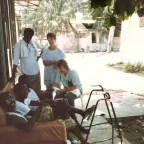
The smell of rubber and other chemicals welcomes visitors when entering the small workshop of the Hpa-an Orthopaedic Rehabilitation Centre (HORC). Zaw Zaw Aung is weighing chemicals on a balance. He …
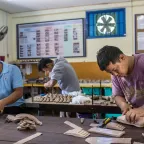
13-09-2022 Geneva (ICRC/IFRC) – The warning lights are flashing on high: armed conflict, climate-related emergencies, economic hardship and political obstacles are leading to a growing wave of hunger …
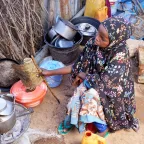
Millions of people in the north-east of Syria are coping with fighting, destroyed infrastructure and lack of critical basic services, on top of the global COVID-19 crisis that has also hit the …
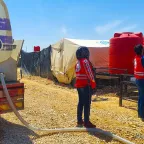
… work at construction sites or doing other jobs, that were traditionally reserved to men. …
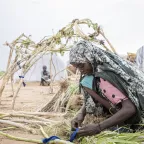
Since 2014, the Lake Chad crisis has been affecting the people of Cameroon’s Extreme North region. Hundreds of thousands have fled, most of them remaining inside the country. In 2016, people in …
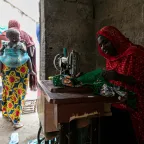
"It took Africa nearly five months to hit 500,000 COVID-19 cases, but about a month to double that number. Most of these cases are in South Africa, but around the continent we are seeing the virus …
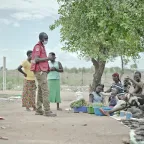
Luzan Jubeh Luzan, who is eight-years-old and lives in Jerusalem, dreams of becoming an engineer. “I want to become an engineer to create buildings and make the world a beautiful place. I will fulfil …

In October, 2016, Helen Durham, Director of International Law and Policy at the ICRC, talked about some most heated IHL issues when interviewed in Beijing. What does the IHL say about terrorism? …
Try one of the following resources:
Created in 1863, the ICRC library, alongside the ICRC archives, provides an indispensable documentary reference on the organization itself and international humanitarian law.
International humanitarian law is based on a number of treaties, in particular the Geneva Conventions of 1949 and their Additional Protocols, and a series of other instruments.
Customary international humanitarian law consists of rules that come from "a general practice accepted as law" and that exist independent of treaty law.